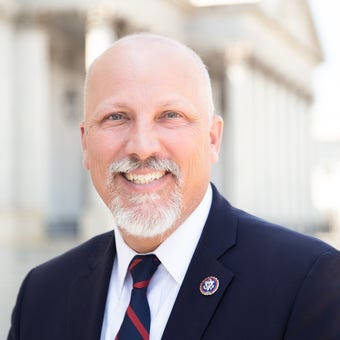Over the past several weeks we’ve seen America come together to fight the coronavirus pandemic.
From my constituency in Austin to New York City and to Seattle, our nation’s first responders and medical professionals have performed above and beyond the call of duty under grueling and stressful circumstances. We must continue their important efforts to save lives, but in doing so, we must also think more broadly about what that means.
While government leaders have shut down much of our economy in response to the coronavirus, we should recognize that those efforts could cost lives in other ways. Multiple psychological studies have found a strong correlation between an increase in unemployment and a rise in the suicide rate.
US EMPLOYERS SHED 701,000 JOBS IN MARCH, UNEMPLOYMENT JUMPED TO 4.4%, AS CORONAVIRUS RAVAGES ECONOMY
For instance, a 2014 Oxford University study estimated that the Great Recession led to 10,000 additional suicides in Europe and North America from 2008 through 2010.
Moreover, the effects of a prolonged downturn do not just affect those who have lost their jobs. A 2015 study found that workers who remained employed increased their use of inpatient and outpatient mental health services during the Great Recession – a sign of the way financial turmoil in the country increases stress on most American families.
In many ways, the effects of the Great Recession remain with us, in the forms of a still-raging opioid crisis and too many young individuals we have lost far too soon.
More from Opinion
One analysis of Centers for Disease Control and Prevention death statistics found that the overall death rate for Americans ages 25 to 44 rose by 8 percent from 2010 through 2015. The financial crisis did not create the opioid epidemic, but accelerated it along with other related "deaths of despair" – from homicides to suicides to abuse of prescription drugs, narcotics and alcohol.
The emphasis on "flattening the curve" aims to save the lives of individuals affected by the coronavirus pandemic, but these important efforts cannot and should not discount other Americans’ health.
The White House and the media focus incessantly on daily coronavirus case counts and deaths. But what will come from the recent increase in calls to suicide hotlines stemming from the dangerous combination of economic stress and increasing social isolation? What of the HIV clinics forced to shut down, temporarily halting our efforts to confront that ongoing pandemic?
CLICK HERE TO SIGN UP FOR OUR OPINION NEWSLETTER
President Trump’s health advisers, including Drs. Deborah Birx and Anthony Fauci, understandably operate with a single-minded focus to push the country to address the coronavirus pandemic.
But this limited focus, to the exclusion of other important conditions, runs the risk of harmful unintended consequences. Instead, our goal should be to pursue a comprehensive path to overcome the pandemic with the least amount of total overall human harm.
The president should add to the Coronavirus Task Force ranks a group of economists, criminologists, psychologists, sociologists and primary care doctors to focus on the second-order implications of our response to the virus.
These experts could examine the consequences of 20 to 30 percent unemployment and financial chaos on addiction, mental health, domestic violence and related issues. They could monitor the raw value of the current shutdown’s impact on our economy, and examine how those effects might ripple through our society and affect Americans’ health.
By giving the president’s Coronavirus Task Force a broader perspective, this group could hopefully offer constructive solutions to avoid the adverse effects of our effort to fight the virus.
Such an approach would help clarify the importance of plotting a path back to normal as soon as possible to restore confidence and hope in the American people.
CLICK HERE TO GET THE FOX NEWS APP
We must learn from the tragic rise in "deaths of despair" we’ve seen over the past decade. They reflect a growing segment of American society that feels forgotten and abandoned.
As our country unites to combat the coronavirus pandemic, we must remember that our lives – the very lives our front-line health care heroes are working to save – also depend on each other and our economic, social, and spiritual interconnection as a people.









































